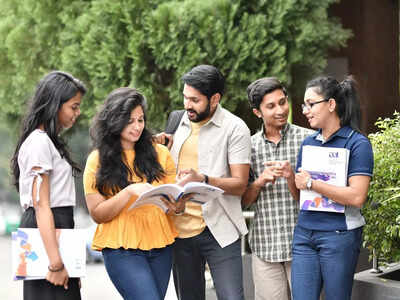
What July 4 means for Indian students facing visa restrictions in the US
As the United States celebrates its Independence Day on July 4, the ideals of freedom and opportunity resonate globally. However, for Indian students residing in the US, particularly under President Trump's administration, these ideals are increasingly juxtaposed with apprehension.
Recent policy shifts have cast uncertainty over their academic and professional futures, challenging the very essence of the American Dream.In 2023, over 7,000 Indian students overstayed their US visas, prompting the Trump administration to propose stricter immigration policies. These include eliminating the "dual intent" provision for student visa applicants, which currently allows students to express the intention to stay in the US post-graduation.
The proposed changes would require students to prove their intent to return to India after their studies, potentially complicating the visa application process for many.Visa restrictions and their impact on Indian studentsThe Trump administration's stringent visa policies have led to significant challenges for Indian students. In 2025, approximately 4,000 student visas were revoked within the first 100 days of the administration's term. These revocations were often based on minor infractions, such as traffic violations, and disproportionately affected Indian students.
Furthermore, the administration has implemented social media vetting for visa applicants, raising concerns about privacy and fairness.Educational institutions respond to policy changesProminent US universities have expressed concern over the administration's policies. Harvard University, for instance, reported that 788 Indian students would need to transfer or depart by the 2025–26 academic year if current policies remain unchanged.
The university has termed the policy "unlawful and disruptive," highlighting the adverse effects on its international student community.The broader implications for Indian studentsThe tightening of visa regulations and the uncertainty surrounding future policies have led many Indian students to reconsider their plans to study in the US In 2024, the US issued over 86,000 F-1 student visas to Indian students, a significant decrease from the 130,000 issued in 2023.
This decline reflects the growing apprehension among prospective students about the stability and inclusivity of the US educational environment.Between resilience and retreatFor students like Ananya Patel, a graduate engineering student at a midwestern university, July 4 brings a mix of pride and apprehension. “It’s hard to celebrate freedom when you’re constantly worried about whether your visa will be approved or if you’ll be asked to leave after graduation,” she said.Still, many are choosing to stay and adapt. Legal counselling services and student-led advocacy groups are helping peers navigate shifting policies. Others are considering alternative destinations, including Canada, the UK, and Australia, where post-study work rights are more stable.A quieter, more complicated July 4
As the US marks another year of independence, Indian students find themselves caught between two American identities — one rooted in openness and progress, the other in caution and control. For them, July 4 is not just a historic date on a calendar. It is a question: how much freedom can you celebrate when the system doesn’t always protect you?

 6 hours ago
48
6 hours ago
48




























 English (US)
English (US)